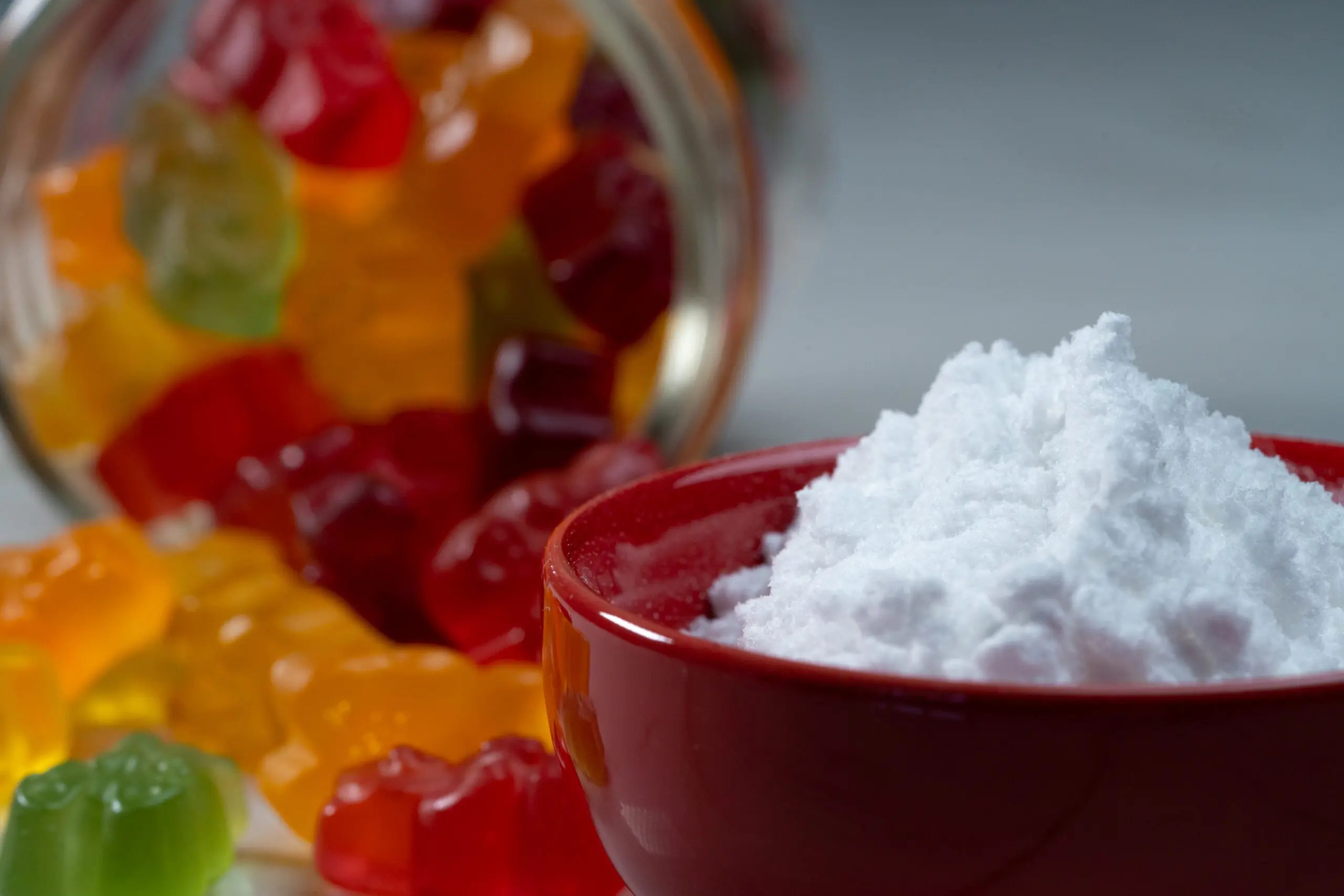This guide explores Sukré, a sweetener that may benefit both gut health and blood sugar management. We’ll examine its potential advantages, compare it to other sweeteners (including stevia-based “sukre sugar”), and discuss how it might fit into a healthy lifestyle. We’ll also address its suitability for individuals with diabetes.
Understanding Sukré and “Sukre Sugar”
It’s important to distinguish between two different sweeteners: Sukré (a prebiotic) and “sukre sugar” (stevia-based). While both offer sweet alternatives to sugar, they have distinct properties and applications.
Decoding Sukré: The Prebiotic Sweetener
Sukré, developed by Compound Solutions, is a prebiotic sweetener. Prebiotics act as nourishment for beneficial gut bacteria, potentially promoting a healthier digestive system and overall well-being.
Why might you choose Sukré?
- Gut Health: It nourishes beneficial gut bacteria, potentially promoting better digestion and overall well-being.
- Blood Sugar Management: It may help stabilize blood sugar levels, making it potentially beneficial for individuals with prediabetes or diabetes. However, more research is needed to fully understand this effect.
- Versatile Use: Sukré can be incorporated into various foods and beverages, including yogurt, smoothies, baked goods, and even supplements.
- Gentle Digestion: Unlike some artificial sweeteners, Sukré is generally well-tolerated and less likely to cause digestive upset.
- Satisfies Sweet Cravings: Offers a sweet taste without the extra calories or significant blood sugar spikes of traditional sugar.
Exploring “Sukre Sugar”: The Stevia Option
“Sukre sugar” is derived from stevia leaves and is a zero-calorie, natural sweetener. It’s intensely sweet, so only a small amount is needed. It’s important to note that this is different from the prebiotic Sukré discussed above.
Why might you choose “sukre sugar”?
- Calorie-Free: A suitable option for those monitoring calorie intake.
- Natural Source: Derived from the stevia plant.
- Blood Sugar Friendly: Minimal impact on blood sugar levels.
- Potent Sweetness: A cost-effective choice due to its high potency.
- Variety of Forms: Available in liquid, powder, and granulated forms.
Choosing the Right Sweetener
The best sweetener for you depends on your individual health goals. If gut health is a priority, Sukré may be more suitable. If you’re focused on calorie reduction, “sukre sugar” (the stevia-based option) might be a better fit. For those looking to regulate their hormones and promote overall wellness, Flo Ovarian Support Reviews are worth considering.
Sukré: A Deeper Dive
Unique Qualities
Sukré stands out due to its prebiotic properties, offering potential gut health benefits beyond simple sweetness. While its exact source isn’t widely publicized, we know it’s derived from natural sources. Ongoing research continues to explore its potential benefits.
Versatile Applications
Sukré’s versatility extends beyond food and beverages. Its potential prebiotic benefits are being explored for applications in personal care products, suggesting the possibility of prebiotic skincare in the future.
Where to Find Sukré
Sukré is typically available through Compound Solutions directly or in products listing it as an ingredient. “Sukre sugar” (stevia-based) is readily available in health food stores, supermarkets, and online.
Sukré and Diabetes: A Detailed Look
If you have diabetes, Sukre Sugar for Diabetics may be a healthier alternative to traditional sugar. Let’s explore Sukre’s suitability for managing diabetes in more detail.
Blood Sugar Impact
Sukre’s low glycemic index (GI) suggests it has a minimal impact on blood sugar levels, unlike traditional sugar. This is likely because the body doesn’t process steviol glycosides in the same way it processes regular sugar. However, individual responses can vary, and it’s crucial to monitor your blood sugar levels after consuming Sukre, especially when starting.
Potential Benefits for Diabetics
- Stable Blood Sugar: Sukre is less likely to cause drastic blood sugar fluctuations or “sugar crashes,” contributing to more stable energy levels.
- Gut Health Support: The potential prebiotic properties of Sukre may support gut health, which is increasingly recognized as important for overall health and blood sugar management in individuals with diabetes.
- Sweetness without the Guilt: Sukre allows individuals with diabetes to enjoy sweetness without the added sugars and calories that can negatively impact blood sugar control.
Comparing Sweeteners for Diabetes
| Sweetener | Glycemic Index | Calories | Potential Gut Health Benefits |
|---|---|---|---|
| Sukre | Low | Zero | Yes (Prebiotic) |
| Sucralose (Splenda) | Low | Zero | No |
| Erythritol | Low | Zero | No |
This table suggests that Sukre may offer advantages over other zero-calorie sweeteners, particularly regarding gut health. However, further research is necessary to confirm these potential benefits.
Integrating Sukre into a Diabetic Diet
- Consult Your Doctor: Always discuss dietary changes, including the use of new sweeteners, with your healthcare provider.
- Start Small: Introduce Sukre gradually to assess your individual tolerance and its effects on your blood sugar levels.
- Monitor Blood Sugar: Regularly check your blood sugar levels after consuming Sukre, especially initially.
- Versatile Usage: Explore various ways to incorporate Sukre, such as in beverages, on breakfast foods, or in baking (keeping in mind it doesn’t caramelize like sugar).
Ongoing Research
It’s important to acknowledge that research on Sukre’s long-term effects, particularly in individuals with diabetes, is still ongoing. Current findings suggest it can be a helpful tool for blood sugar management, but future research may provide further insights.
Does Sukre Really Work? Examining the Evidence
While anecdotal evidence and some research suggest potential benefits, it’s crucial to approach Sukre with a balanced perspective.
Potential Benefits
- Blood Sugar Control: Sukre’s low GI suggests it’s unlikely to cause significant blood sugar spikes.
- Gut Health: Its prebiotic properties may contribute to a healthier gut microbiome.
- Calorie Control: Being a zero-calorie sweetener, it can support weight management efforts.
Considerations
- Individual Responses: As with any dietary change, individual responses to Sukre can vary. Monitoring your body’s reaction is essential.
- Limited Long-Term Research: More research is needed to fully understand the long-term effects of Sukre consumption.
- Not a Magic Bullet: Sukre is not a replacement for a healthy lifestyle. It can be a tool within a broader approach to healthy eating and diabetes management.
Pros and Cons of Sukre
Pros:
- Zero Calories
- Low Glycemic Index
- Potential Prebiotic Benefits
- Generally Well-Tolerated
Cons:
- Doesn’t caramelize like sugar
- More research needed on long-term effects
What is Sukre Sweetener Made Of? Uncovering its Origins
As discussed earlier, Sukre is derived from the stevia plant, specifically from compounds called steviol glycosides. These glycosides are responsible for Sukre’s intense sweetness, being approximately 200 times sweeter than table sugar. It’s this concentration of steviol glycosides that makes Sukre so potent.
Key Features of Sukre
| Feature | Details |
|---|---|
| Source | Stevia leaves (specifically steviol glycosides) |
| Calories | Zero |
| Blood Sugar Impact | Minimal |
| Additional Benefit | Potential prebiotic, supporting gut health |
Addressing the Aftertaste
Some individuals experience a slightly bitter aftertaste with Sukre. This is often related to the specific types of steviol glycosides present. Research continues to explore ways to refine the sweetness profile and minimize this aftertaste. Combining Sukre with other sweeteners like erythritol or monk fruit might also help balance the flavor.
Conclusion: Sweetness with Potential
Both Sukré and “sukre sugar” offer distinct advantages as sugar alternatives. By understanding their differences and consulting with your healthcare provider, you can make an informed choice that aligns with your individual health goals and preferences. Remember, moderation is key with any sweetener, and whole, unprocessed foods remain the foundation of a healthy diet.
- Stainless Steel Food Storage Containers Elevate Daily Meal Prep - February 24, 2026
- Stainless Steel Food Containers Offer Safe, Sustainable Meal Storage - February 23, 2026
- Meal Prep Lunchbox Makes Healthy Eating Easy and Convenient - February 22, 2026










